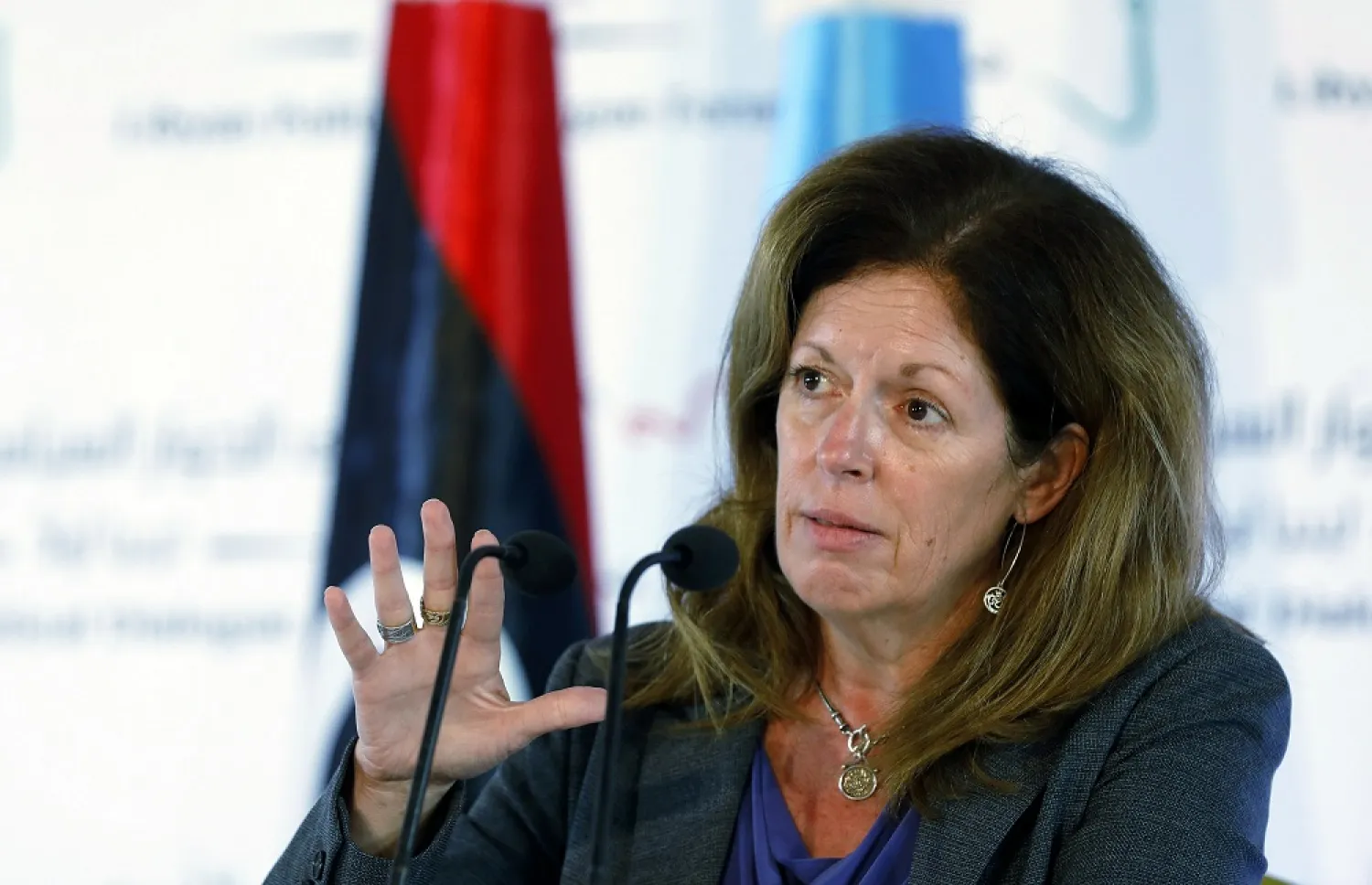Delegates from Libya’s opposing sides kicked off a five-day meeting on Monday to choose an interim prime minister and a three-person Presidential Council in a bid to reunite the troubled oil-rich country before an election in December.
The Libyan Political Dialogue Forum, including envoys from around Libya, was meeting under UN mediation in an undisclosed site outside Geneva.
The voting process is taking place under the mediation of the UN secretary-general’s acting special representative for Libya, Stephanie Williams. The interim authority to be chosen will seek to rebuild state institutions and lead Libya to a national election on December 24. A list of possible candidates has already been agreed upon.
“Reaching this far and achieving this progress in the political dialogue has been an arduous journey fraught with challenges,” Williams told the gathering Monday. “Indeed, a year ago, this would not have been possible.”
“This decision was greeted with the overwhelming approval by your compatriots, and it is a commitment that must be honored at all costs,” she said.
“The Libyan people are behind you. They support you and they want you to succeed. They need you to succeed. Don't let them down.”
Williams stressed that the temporary leaders should strive towards national reconciliation and the restoration of democracy.
“This project is not about power sharing or dividing the cake,” she said.
“Rather it is to form a temporary government composed of patriots who agree to shoulder and to share the responsibility to put Libyan sovereignty and the security, prosperity and the welfare of the Libyan people above narrow interests.”
After her introduction, the candidates began presenting themselves to the delegates via video link.
The warring factions also agreed that a national referendum would be held on constitutional arrangements, laying the legal groundwork for the December vote.
The 75-member forum represents the three main regions of old Libya: Tripolitania in the west, Cyrenaica in the east, and Fezzan in the southwest — each to be represented on the Presidential Council. The prime minister is to be chosen by the candidate winning 70 percent of votes.
Twenty-four candidates are running for the Presidential Council posts. They include Aguila Saleh, speaker of the east-based House of Representatives, and Khalid al-Mishri, the head of the Tripoli-based GNA’s Supreme Council of State.
Twenty-one candidates are running for prime minister, including Fathi Bashaga, the interior minister in the GNA, and Ahmed Meitig, deputy prime minister of the GNA.
There are only three women among the 41 candidates: One for the Presidential Council from the western region and two for the prime minister's post, both from Tripolitania and Fezzan.
Bashaga, a front-runner, said the transitional government should be a national unity one that brings all Libyans together without discrimination.
“We are one kilometer away from a successful ending of a long hectic process. Failure is definitely not an option,” he tweeted Sunday.
Given the sheer number of candidates and the high bar needed to declare a winner, the UN mission is likely to resort to lists formed from Libya’s three regions, with each list consisting of four names, nominated for the presidential council and a prime minister position.
This is likely to lead to candidates working together to form a most-likely-to-win list, said Jalel Harchaoui, a research fellow specializing in Libyan affairs at the Clingendael Netherlands Institute of International Relations. He said foreign countries, like Russia and Turkey, are likely exerting their sway on the choices too.
“In fact, we don’t even know whether a cabinet can be formed at all, even assuming the four positions are filled thanks to the UN process. The Defense Ministry, for instance, will be one very tricky post, obviously, as Turkey is hell-bent on controlling it,” he said according to The Associated Press.
Last week, the United States called on Russia and Turkey to halt their military interventions in Libya, as has been sought under the ceasefire agreement that has largely held in recent months.
The ceasefire deal, inked in October, included having foreign forces and mercenaries leave Libya within three months but so far no progress has been made on that.
Williams said in December there were at least 20,000 foreign fighters and mercenaries in Libya, and warned about a “serious crisis” as weapons continue to pour into the country.
Turkey is the main patron of the GNA.
UN Secretary-General Antonio Guterres has said Libyans are making a “remarkable effort to come together” and said it’s crucial for foreign forces to withdraw.
Satellite images broadcast by CNN showed a trench running tens of kilometers (miles) dug by “Russian mercenaries” near the frontline coastal city of Sirte, as foreign protagonists Ankara and Moscow appear intent on defending their interests under any final settlement.
An unidentified US intelligence official quoted by the American news network said there was “no intent or movement by either Turkish or Russian forces to abide by the UN-brokered agreement”.









